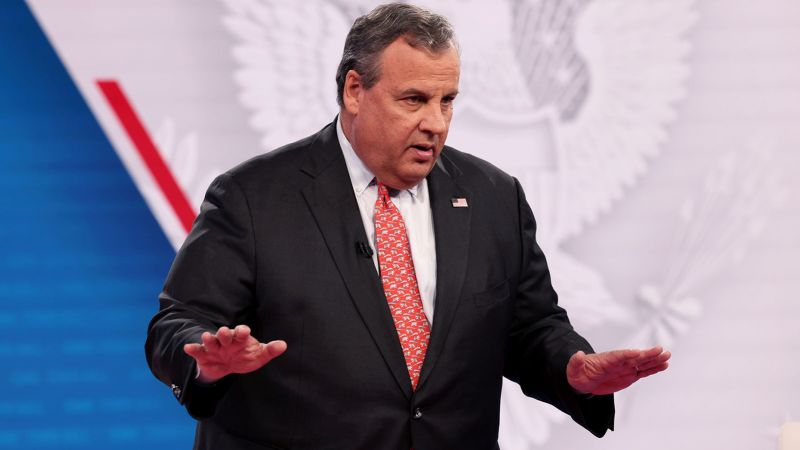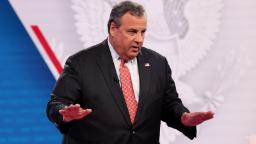

CNN
—
Former New Jersey Gov. Chris Christie has anchored his 2024 presidential campaign to calling out former President Donald Trump – specifically his falsehoods about the 2020 presidential election.
During a CNN town hall on Monday, Christie – who lost to Trump in the 2016 Republican primary before supporting him later that year and again in 2020 – didn’t spread nearly as many falsehoods as the 2024 GOP front-runner. But Christie made his own claims that, at least partially, strayed from or omitted the truth.
On allegations of collusion between Trump’s 2016 campaign and Russia, for example, the former governor only told half the story. And when it came to the Bridgegate scandal that engulfed his second term as governor, Christie omitted important context.
Here is a fact check of these and some other remarks Christie made at the town hall.
Christie spoke about Trump’s 2016 presidential campaign and the topic of Russian collusion.
“I was involved in that campaign in 2016 with Donald Trump,” Christie said. “Let me tell you something. I can guarantee you there was no colluding going on. They were trying to figure out how to get from New York to Wisconsin. …Colluding with the Russians was the last thing they were thinking about.”
Facts First: Christie only told half the story. It’s true that special counsel Robert Mueller never accused any Trump campaign associates of conspiring with Russian officials. But Mueller found dozens of secret contacts between Trump aides and Russian agents, several attempts to coordinate, and that Trump’s team was “receptive” to some offers.
In his report, Mueller said: “The investigation established multiple links between Trump Campaign officials and individuals tied to the Russian government. Those links included Russian offers of assistance to the Campaign. In some instances, the Campaign was receptive to the offer, while in other instances the Campaign officials shied away.”
For instance, at the infamous Trump Tower meeting in June 2016, two Trump family members and his campaign chairman tried to get damaging information about Hillary Clinton from a Kremlin-linked Russian lawyer.
Paul Manafort, the campaign chairman, repeatedly sent internal Trump campaign data to a Russian spy, who passed it along to Russian intelligence agencies, according to several US government reports.
Lower-level Trump campaign adviser George Papadopoulos learned about Russia’s willingness to help Trump win, and he tried to set up meetings between Trump and Russian President Vladimir Putin.
These Trump-Russia connections were troubling, but not illegal, according to Mueller.
From CNN’s Marshall Cohen
Christie claimed that he was not involved in and had “no knowledge of” the Bridgegate scandal that marked his second term as governor, and ultimately resulted in the conviction of two of his former aides.
Facts First: This needs context. While Christie was never charged by federal prosecutors, prosecutors alleged and two of Christie’s former aides testified he knew about the plan to close lanes on the George Washington Bridge in 2013 – an alleged form of retaliation against a Democratic mayor who didn’t support Christie in his previous gubernatorial race.
Both David Wildstein, a former high-ranking Port Authority official, and Christie’s former deputy chief of staff Bridget Anne Kelly testified under oath that they had told Christie about plans to close the lanes on the bridge. Wildstein also testified that Christie’s reaction upon hearing the news was to laugh. Kelly and another aide were convicted, but their convictions were later overturned by the US Supreme Court. The US attorney for New Jersey said at the time that knowledge of the situation was not itself a crime. During Monday night’s CNN town hall, Wildstein tweeted, “Ten years later and Christopher still isn’t telling the truth.”
From CNN’s Ella Nilsen
Christie pointed to the police reform efforts he supported in Camden, New Jersey, as proof that he could bring down violent crime.
“Who would you rather have to deal with the problem of rampant crime in our cities all over this country? I’ve done this in the city of Camden, New Jersey, and you know this – 10 years ago, it was the most dangerous city in America. You know what I did? And I don’t think this is compromised Republican principles, I fired the entire Camden city police department,” said Christie, noting that they created a new police department.
“You know what the result is? The stats just came out this week. The 10-year anniversary of the firing of that department, murder rates in Camden are down 75% from 10 years ago.”
Facts First: This is mostly true but needs context. Camden was the most dangerous city in America 10 years ago, with the highest rate of violent crime in the country according to FBI data. But Christie did not personally fire Camden’s police department, instead supporting efforts to dissolve and build a new police force.
As governor at the time, Christie did not have the authority to fire the local police department, but he did support efforts from Democratic lawmakers to dissolve Camden’s police department and regionalize the city’s services and police force. Christie had control of the state’s budget, which allocated emergency funding to struggling Camden, and reportedly threatened to withhold emergency funding from the city if the major reforms were not enacted.
The Camden City Council ultimately voted to disband Camden’s police force and authorized a new one under the county’s control, creating the Camden County Police Department in 2013.
A news release last week from the Camden County Police Department stated that there was a 74% reduction in murders over the 10 years since.
Christie blasted Trump for his lack of fiscal control when he was in office, even though Christie said Trump had promised he would balance the budget in four years.
“We [were] left with one of the biggest deficits any president’s ever had,” Christie said.
Facts first: Christie is correct. Trump left office with the largest peacetime budget deficit in US history, according to the Manhattan Institute for Policy Research, a right-leaning think tank.
The deficit in fiscal year 2020 reached $3 trillion, fueled by a tremendous federal response to the Covid-19 pandemic. The deficit accounted for 14.9% of the economy, a common way to measure the size of the deficit.
However, while it was the first time the deficit reached $3 trillion, it was a smaller share of the economy than during the height of World War II, the Manhattan Institute said.
From CNN’s Tami Luhby
